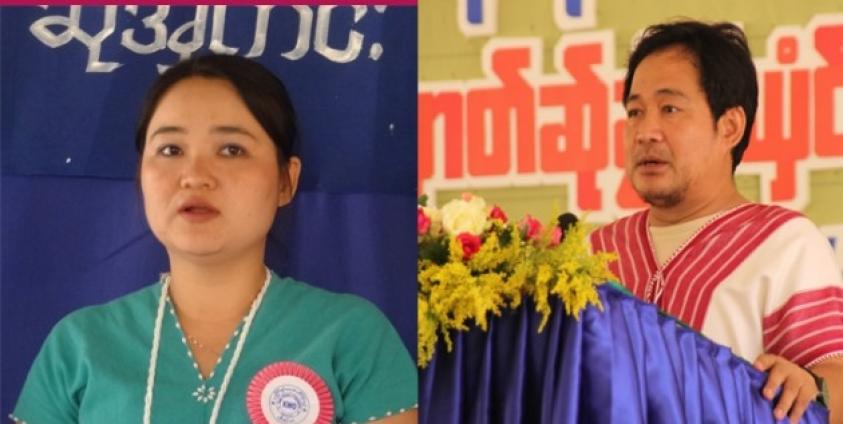Karen community-based organizations have issued media statements raising concerns about the recent decision of the Karen National Union to sign a Nationwide Ceasefire Agreement with the Burma government.
The Karen Peace Support Network (KNSP), a coalition of community based groups and the International Karen Organization (IKO) both sent open letters to KNU expressing their alarm that it had taken the decision to sign the NCA without consulting the people.
The KNSP convened an emergency meeting on August 21-22 on the Thai-Myanmar border after Senior General Min Aung Hlaing, the current commander-in-chief of the Myanmar Armed Forces, told the media that the ethnic armed groups would be disarmed after NCA is signed.
The KPSN’s spokesperson, Naw K’nyaw Paw told Karen News that the country’s defence force chief’s comments sent a shockwave through ethnic communities.
“Our concerns are that the commander-in-chief’s statement [about disarming] and that Burma’s political affairs are to be solved only with the [signature of] KNU. We do not believe that peace would be achieved by getting the KNU or three or four other ethnic groups signing the NCA. The exclusion of the other ethnic groups is also our concern.”
Naw K’nyaw Paw said that if the government wanted only the ethnic armed groups, that they recognize, to sign the NCA, it is critically important that there are guarantees for those armed ethnic groups not recognized in a signed NCA.
Responding to the concerns of the community-based-organizations, Padoh Mahn Mahn, the KNU joint-secretary 2, told Karen News that, “the statement from the commander-in-chief is not only a concern for the KPSN, but also for us as well.”
Padoh Mahn Mahn contradicted Senior General Min Aung Hlaing’s media statement. “It is our understanding that the DDR/SSR [Disarmament, Demobilizing and Reintegration/Security Sector Reform] has to be negotiated from political dialogue. We understand that the DDR/SSR will not happen after the signing of the NCA.”
Padoh Mahn Mahn said that Senior General Min Aung Hlaing’s media statements are “unacceptable and also impossible.”
In its open letter, International Karen Organization urged that if the KNU is to sign the NCA it needs to consult with Karen political organizations, academic and scholars, political organizations and social groups and civilians.
In response to the issues raised by the IKO, Padoh Mahn Mahn said.
“We [KNU] pay close attention to suggestions and concerns from both Karen community and societies inside Myanmar and abroad. Their concerns are ours and exactly the same.”
Contrary to the demands of the Karen community groups Padoh Mahn Mahn said that the KNU would speak to its constituency “after signing the NCA, we plan to have a public conference so that it will be clear to everyone.”
Following the KNU’s 15th congress, on August 15, it announced its decision to sign the NCA with the government, ethnic organizations released appeal letters and statements stating their dismay at the KNU’s decision.








